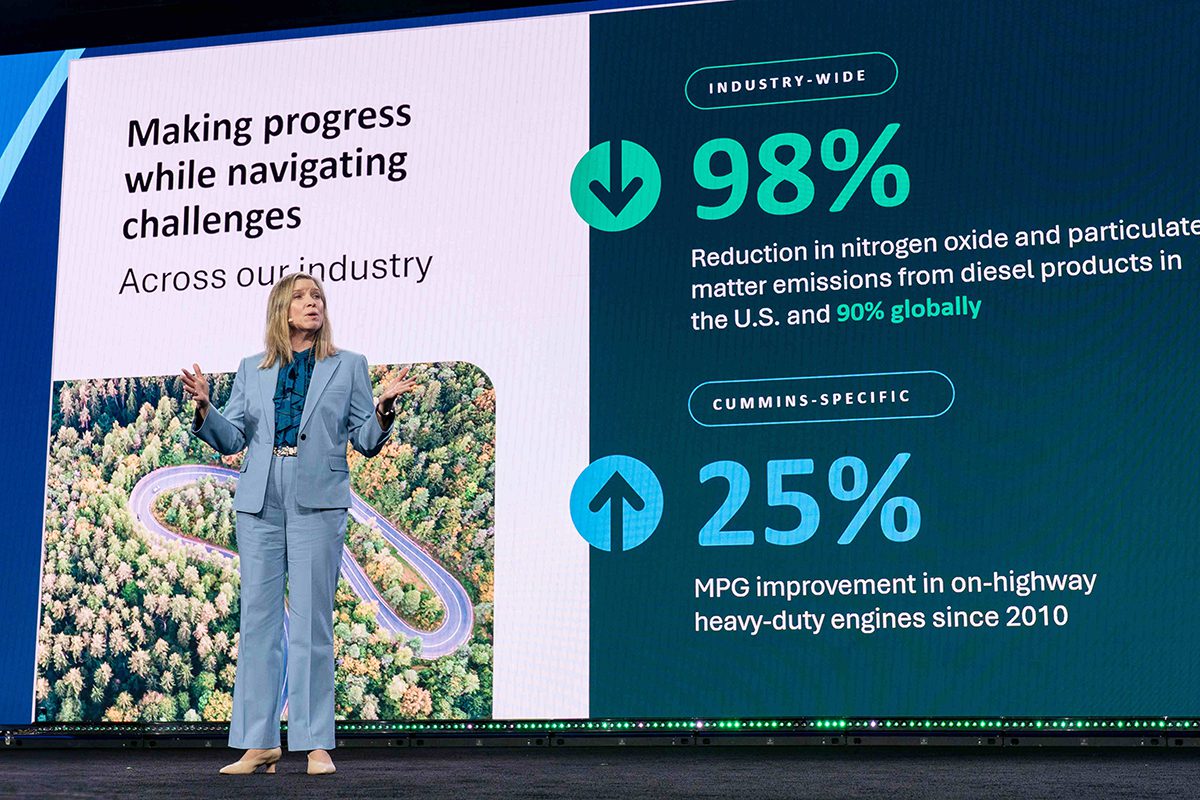ACT Expo 2025: Navigating Uncertainty Towards a Cleaner Transportation Future
Key Ideas
- Cummins' CEO emphasizes the need for resilience and innovation in the face of uncertainty in the clean transportation industry, including a shift in regulatory clarity and incentives.
- The keynote highlights significant progress in reducing emissions and improving fuel efficiency over the last 25 years, with a focus on technologies like battery electric, fuel cell, and hydrogen.
- Key actions proposed include smart regulations, considering life cycle emissions, and continued innovation to achieve greenhouse gas reductions and drive economic value.
- Real-world examples showcase the success of natural gas vehicles and advancements in hybrid technologies, emphasizing the need to reduce total cost of ownership for broader electric vehicle adoption.
The ACT Expo 2025 kicked off with a keynote address by Cummins Chair and CEO Jennifer Rumsey, setting the stage for a dynamic and unpredictable phase in the clean transportation industry. The keynote highlighted the challenges posed by regulatory uncertainty and shifting incentives but called for continued innovation and investment in cleaner, more efficient technologies. The industry's progress in reducing emissions and improving fuel efficiency was celebrated, with a focus on various solutions including battery electric, fuel cell, hydrogen, and advanced diesel engines.
Rumsey outlined essential actions for the industry, emphasizing the importance of smart regulations, considering life cycle emissions, and driving continued innovation to achieve greenhouse gas reductions and economic value. Real-world examples from fleets like WM, UPS, and Gazelle Transportation demonstrated the success of natural gas vehicles and advancements in hybrid technologies.
Electric vehicle adoption, particularly in specific applications like school buses, was highlighted, with the need to reduce total cost of ownership for broader market adoption. Cummins' partnership with key players to manufacture lithium iron phosphate battery cells in the U.S. aims to strengthen domestic electrification infrastructure.
The keynote concluded with a call for collaboration, flexibility, and a commitment to progress to navigate the complexity of the road ahead towards a more prosperous and sustainable future for transportation.
Topics
Fuel Cells
Technology
Innovation
Sustainability
Regulations
Collaboration
Economic Impact
Clean Transportation
Fuel Efficiency
Latest News
